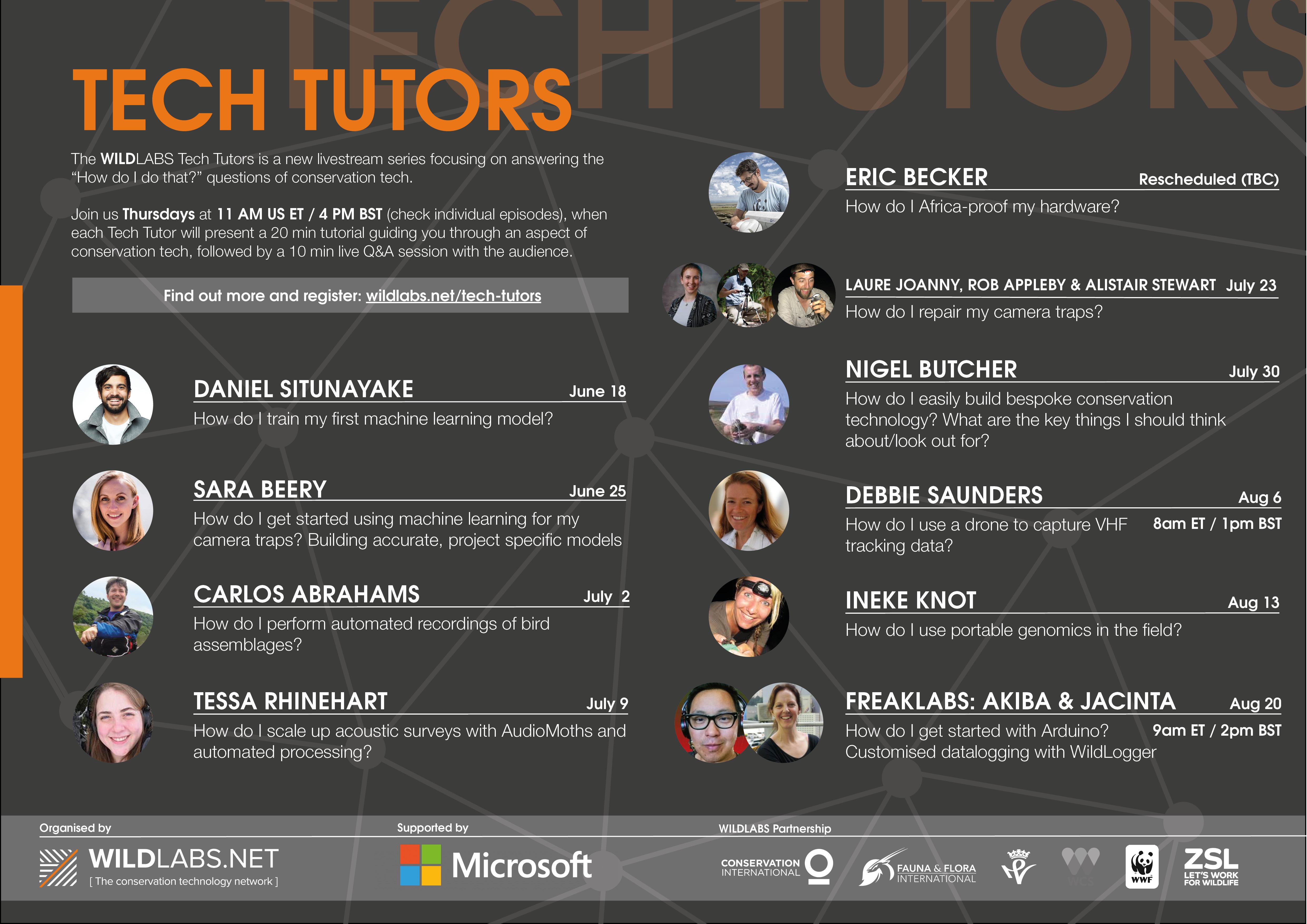About the Series
Introducing the WILDLABS Tech Tutors, our new series that focuses on answering the "how do I do that?" questions of conservation tech. Launched with the support of Microsoft AI for Earth, this series will give you the bite-sized, easy-to-understand building blocks you'll need to try new conservation technology, enhance your research, or DIY a project for the first time.
Taking place every Thursday, each Tech Tutor will present a 20 minute tutorial guiding you through an aspect of conservation tech, followed by a 10 minute live Q&A session with the audience.
For participants, the outcome will be an increased sense of confidence in their technological skills, the ability to actively build off of the skills discussed in these tutorials, and an opportunity to learn and collaborate with other members of the WILDLABS community. Our goal is to customize these tutorials to fit the needs of the community and address your needs, so let us know what you want to see in this season and beyond.
Can't make it? You can find every tutorial after it airs on our Youtube channel.
Catch up on the chat and shared resources from the session in our collaborative notes here.
Meet Your Tutor: Nigel Butcher, RSPB
Nigel says, "I have worked for the RSPB for 20 years managing a small team who provide an in-house design and production facility of bespoke electronic equipment .The work involves the design and development of electronic devices to provide solutions to our many research questions as well as detecting wildlife crime.
Many of my early projects utilised remote cameras to identify nest predators of a whole suite of avian species. Tracking technologies have also been a major area of interest and this continually evolves as to what is possible. More recently we have dabbled in an array of technologies for monitoring including Audio, RFID, UAV’s and have used microprocessors, Arduino and Raspberry Pi."
Check out this BBC feature to learn more about Nigel's work.
We asked Nigel...
What will I learn in this episode?
As a bit of a jack of all trades ,master of none - I will provide an insight into a whole suite of technologies that I have used. Whilst talking about a couple of these I will attempt to cover powering equipment and housing it, so that is reliable and durable enough for its environment and the trade-offs on both of these.
How can I learn more about this subject?
Read methods in the journals and also short notes on equipment contained within some of them. Use WILDLABS as a place to go and don’t be afraid to ask. I have always highlighted to colleagues that it's as important to highlight and write up methods that have failed, as this information is harder to obtain.
If I want to take the next step using this technology, where should I start?
Always decide what outcome you want and find out all of the parameters that are of concern in the first instance i.e mAh, IP ratings. Become familiar with a multimeter and how to undertake measurements suing it as lots of item can be saved by checking batteries and continuity (resistance) of connections.
What advice do you have for a complete beginner in this subject?
Know your species and realise that in terms of Conservation technology, no one size/method fits all. Even within species an animals behaviour is very different so make sure if you select something make sure it is adaptable. Beware of obsolescence and build/buy equipment assuming things will have changed within 3 years!
Learn more about our Tech Tutors

Visit the series page on WILDLABS to find the full list of WILDLABS Tech Tutors.


Add the first post in this thread.